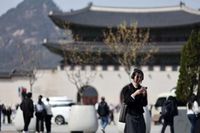S&P Global Ratings has made significant moves regarding the credit outlooks of several countries and companies, reflecting a complex economic landscape as of April 2025. In a series of updates, the agency revised its outlook for U.S.-based Lamb Weston Holdings Inc from stable to negative, while reaffirming South Korea's long-term sovereign credit rating at AA with a stable outlook. Meanwhile, Hungary's outlook was also downgraded to negative, but the government remains optimistic about a recovery later this year.
On April 14, 2025, S&P Global Ratings announced a negative outlook for Lamb Weston, a major player in the frozen potato industry. The ratings agency affirmed the company’s 'BB+' issuer credit rating and 'BB+' issue-level rating on its senior unsecured notes. This outlook revision comes amid a challenging operating environment characterized by increasing competitive pressures, declining capacity utilization, and potential trade policy risks.
According to S&P, Lamb Weston’s adjusted leverage stood at 3.8x for the twelve months ending February 28, 2025, which exceeds the 3.5x downgrade trigger. The agency noted, "The outlook reflects expectations that Lamb’s operating performance and credit metrics will continue to be pressured by intensifying competition and declining capacity utilization." The company has faced softened restaurant traffic and significant industry-wide capacity additions, with more than 3.5 billion pounds announced since its 2023 investor day.
Looking ahead, Lamb Weston anticipates that the industry could add up to 8.6 billion pounds by 2028, pushing total industry capacity beyond 44 billion pounds. This surge in capacity has led to heightened pricing pressures, particularly in international markets, as industry capacity utilization has dropped from high-90% levels in 2022-2023 to around 90% in 2024. Lamb's management projects further deterioration into the mid-to-high 80% range in the coming years.
As a result, Lamb Weston’s revenue is expected to decline by approximately 1% in fiscal 2025, reaching $6.4 billion. The company’s ongoing restructuring and cost savings program is projected to lead to an 18.5% contraction in EBITDA dollars for the fiscal year. However, S&P anticipates a modest rebound in EBITDA for fiscal 2026, with leverage expected to trend down to the low 3x area as cost savings are realized.
In response to these challenges, Lamb Weston has engaged Alix Partners to explore near- and long-term value creation and cost-saving opportunities. The company’s financial policy, characterized by a growing dividend payout and share repurchases, has recently faced pressure as discretionary cash flow turned negative during fiscal 2025. S&P forecasts a recovery in free operating cash flow generation to over $300 million in fiscal 2026, driven by reduced capital expenditures.
Conversely, on the same day, S&P revised Hungary's ratings outlook to negative. The Hungarian government expressed confidence in a positive turnaround in the second half of 2025, citing indicators such as rising employment, increased consumption, and a record year for tourism. Employment in Hungary is nearing 4.7 million, and the government aims for GDP growth exceeding 3% in the latter half of 2025, with a full-year growth target of 2.5%. Growth is expected to accelerate to around 4% in 2026.
The Hungarian government is currently drafting a budget aimed at achieving a break-even primary fiscal balance. Measures to combat inflation, including price caps on food products and voluntary freezes by telecommunications companies and banks, are also in place. The government asserts its entitlement to European Union funding and is actively working to secure these transfers.
Meanwhile, S&P reaffirmed South Korea's AA long-term sovereign credit rating on April 15, 2025, maintaining a stable outlook. The agency's decision reflects expectations of resilient economic growth, projecting that Korea's GDP will expand by about 2% annually through 2028, with GDP per capita increasing from $35,000 in 2025 to $41,000 by 2028.
Despite a forecasted slowdown to 1.2% growth in 2025 due to ongoing trade tensions, S&P anticipates a recovery to 2% in 2026. The agency noted that South Korea's institutional framework and policy environment remain strong, supporting its credit profile. Although recent political turbulence, including a brief declaration of martial law and the impeachment of former President Yoon Suk Yeol, did not significantly disrupt economic stability, S&P cautioned that prolonged political strife could weaken future governments' policymaking capabilities.
In summary, the economic outlooks for Lamb Weston, Hungary, and South Korea reflect a blend of challenges and opportunities. While Lamb Weston faces significant pressures from competition and market dynamics, Hungary's government is optimistic about economic recovery, and South Korea enjoys a stable credit rating backed by expected growth. As these countries and companies navigate their respective landscapes, the coming months will be crucial in determining their economic trajectories.

